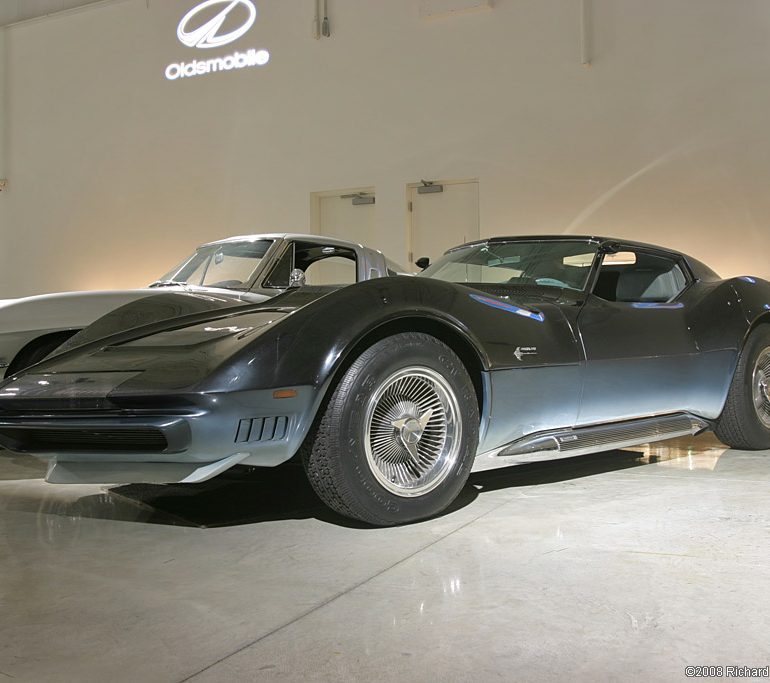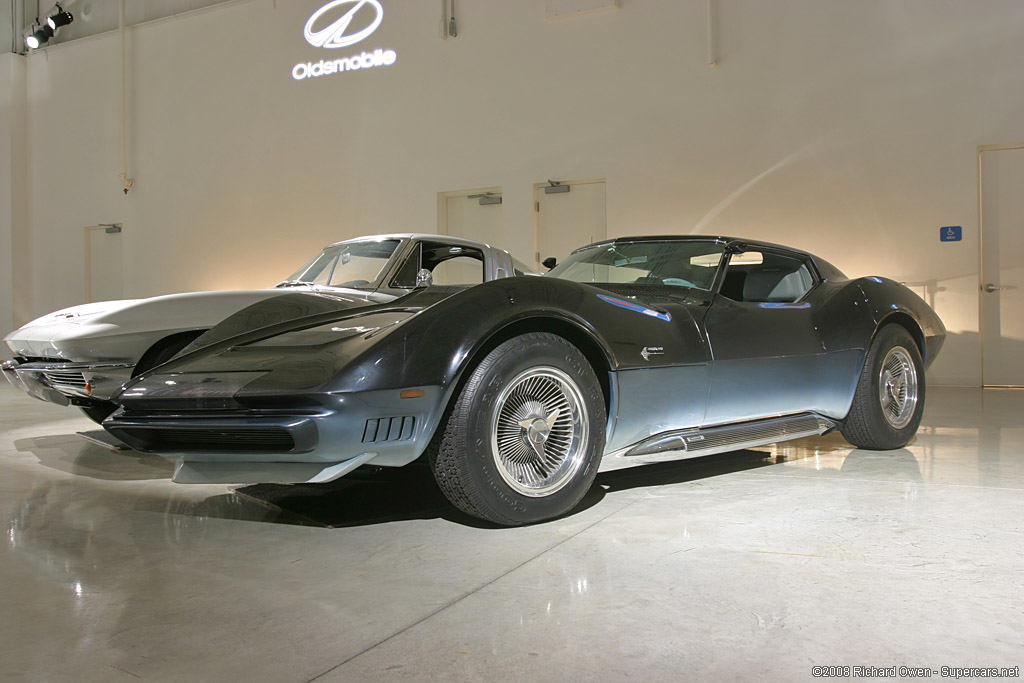1965 Chevrolet Corvette Manta Ray
Four years after the original Mako Shark concept foreshadowed the design of the next-generation Corvette that debuted in 1963, the Mako Shark II provided an early glimpse of the third-generation Corvette design, which was introduced for the 1968 model year.
Also like the first Mako Shark show car, the second was influenced by design chief Bill Mitchell’s affinity for deep sea fishing – in this car, the sleek, swept look of a manta ray. The concept featured a one-piece, front-hinged front end that opened to reveal not only the engine, but much of the front chassis and suspension. The rear bumper was retractable, too, offer more parking-lot protection when extended. The rear end also featured an adjustable rear wing.
Inside, the Mako Shark II contained very advanced controls and features for its day, including remote control operation for the automatic transmission, a digital readout for the speedometer and fuel gauge and stereo speakers in the seat headrests. There were 17 electric motors for the cabin’s various functions, at a time when even power seats were rare.
Like many of Chevrolet’s concepts of the era, the Mako Shark II enjoyed time on the show circuit and was reborn a few years later with styling updates – and a new name: Manta Ray. It debuted in 1969.
Transforming the Mako Shark II into the Manta Ray included the addition of a front spoiler was added, changes to the grille and the “side pipe” exhausts were redesigned. The rear design changed, too, with a flying buttress-style appearance replacing a series of horizontal slats behind the rear window. The “new” Manta Ray also received a ZL-1 427-cubic-inch big-block V-8 engine.
This car has retained its Manta Ray styling since 1969.
1965 Chevrolet Corvette Manta Ray Gallery
See full 1965 Chevrolet Corvette Manta Ray Gallery
Story by GM Media Archives
In Detail
| type | Concept / Prototype Car |
| built at | Michigan, USA |
| production | 1 |
| engine | Mark IV V8 |
| position | Front Longitudinal |
| aspiration | Natural |
| displacement | 6997 cc / 427.0 in³ |
| power | 316.9 kw / 425.0 bhp @ 6500 rpm |
| specific output | 60.74 bhp per litre |
| torque | 650.79 nm / 480.0 ft lbs @ 3500 rpm |
| driven wheels | RWD |
| transmission | Turbohydromatic 3-Speed Auto |





